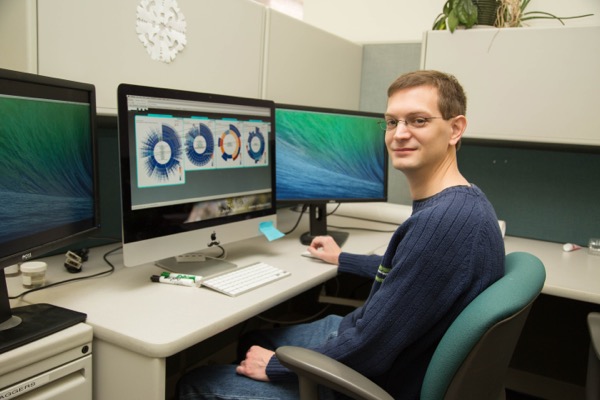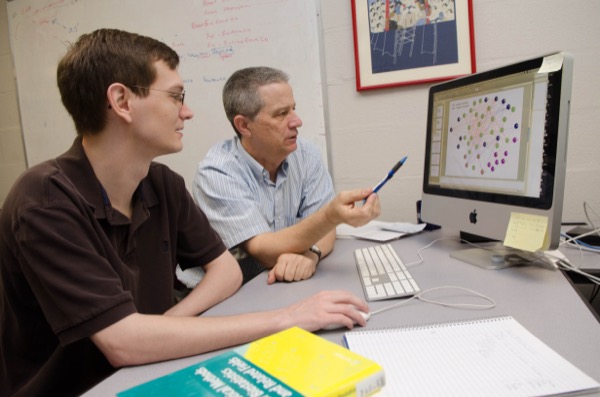


Crocodilian genes
UD student uses genome annotation to help study crocodiles, alligators, gharials
9:36 a.m., Feb. 17, 2015--For the last year and a half, University of Delaware doctoral student Colin Kern has been annotating the genome of the American alligator, the salt water crocodile and the Indian gharial to help researchers from multiple institutions determine the ancestral patterns of evolution among archosaurs, which include crocodilians, dinosaurs and birds.
The results of this study were recently published in the American Association for the Advancement of Science journal Science.
Research Stories
Chronic wounds
Prof. Heck's legacy
Kern, who is studying in the Department of Computer and Information Sciences, worked on the project with Carl Schmidt, professor in the Department of Animal and Food Sciences, to try to identify where certain genes are located on the sequenced genomes of the three species.
There are two ways to try to determine the location of the genes, Kern said. The first is to predict where the genes are based on current knowledge and the ability to identify sequences of DNA that mark the start of a gene.
The second is to look at known genomic information from other species. “We know that all life evolves, and if you go back far enough, any two species will have a common ancestor,” Kern said, explaining that a researcher who finds a gene in a given animal and sees a very similar sequence in a genome just created can infer that it might be the same gene in the newly-studied animal.
Kern said that for each species, he looked for about 20-25,000 genes.
To comb through such massive amounts of data, Kern used two computer programs. The initial gene prediction was done using a program called Augustus and when it came time to assign a function or a name to the genes, he used a tool called the Basic Local Alignment Search Tool (BLAST), which is used to search for similar genes.
Kern said the researchers took the genes that they predicted from the crocodiles, and about which they were not certain, and ran the BLAST program in comparison to chickens to determine the similarities between the genes of the two species.
“We started with the chicken because birds are the most similar group of species to crocodiles, and chicken is probably the most well-studied bird,” said Kern. “We were able to assign a name — and along with a name comes the function of what those genes actually are — to a lot of the crocodile genes.”
Once the genes were identified at UD, Kern said the results were sent to researchers at other institutions to complete the study.
The results of the study show that the evolutionary rate of crocodilians is exceptionally slow.
For example, Kern said, even though the crocodile and alligator have been separate species for about 80 million years, “they’re more similar than comparing two mammal species that may have only split 20 million years ago.”
The data produced from the study, along with newly published bird genomes, also allowed the researchers to reconstruct the partial genome of the common ancestor of archosaurs, providing a tool to investigate the genetic starting material of crocodilians, birds and dinosaurs.
Article by Adam Thomas
Photos by Lindsay Yeager and Danielle Quigley









